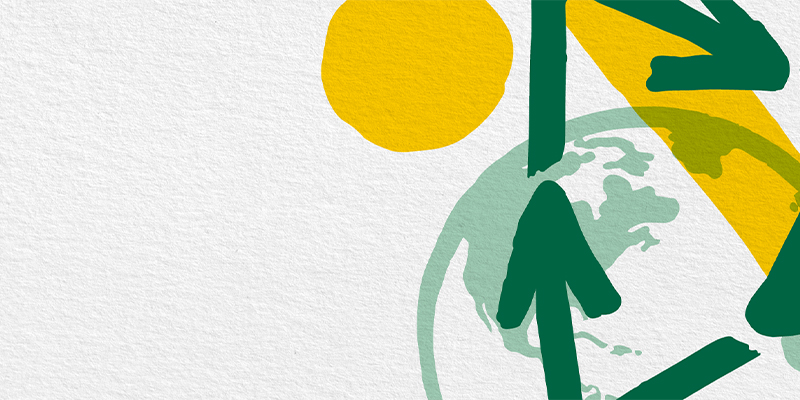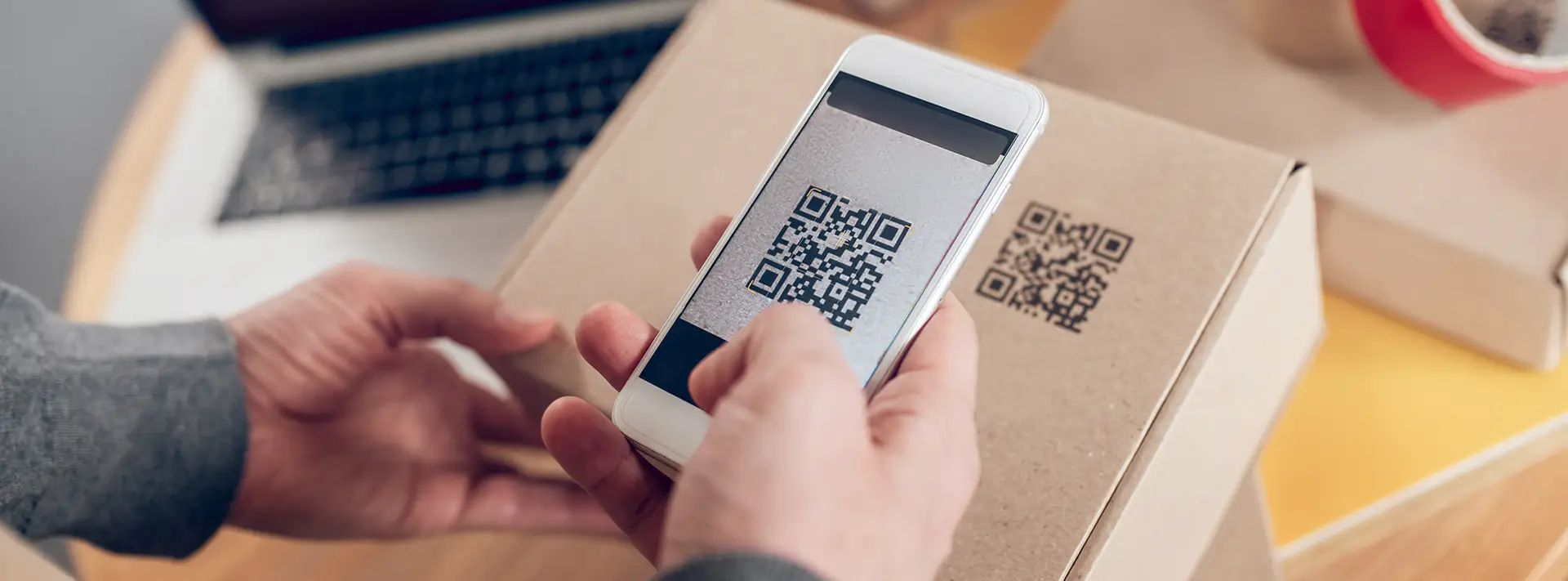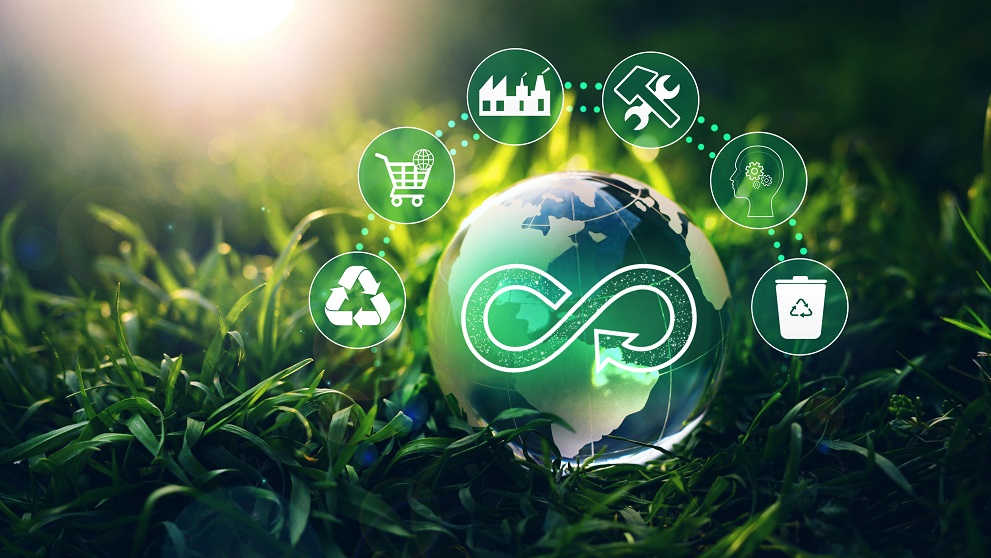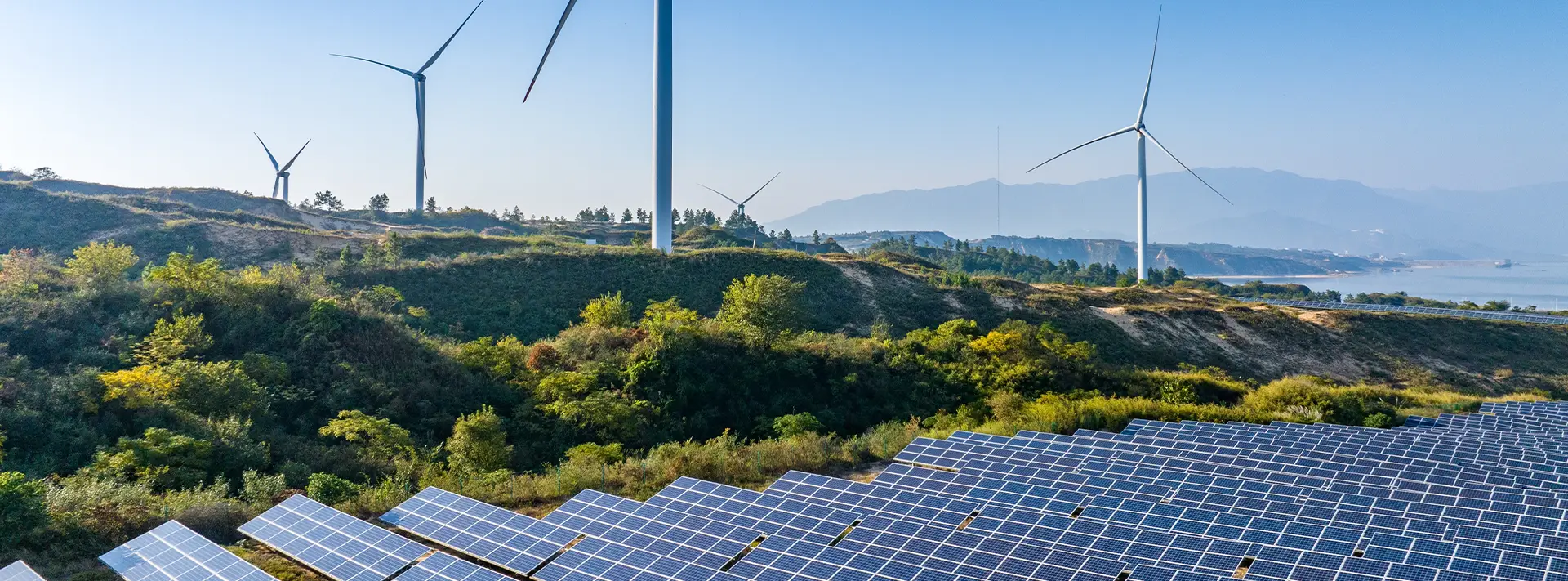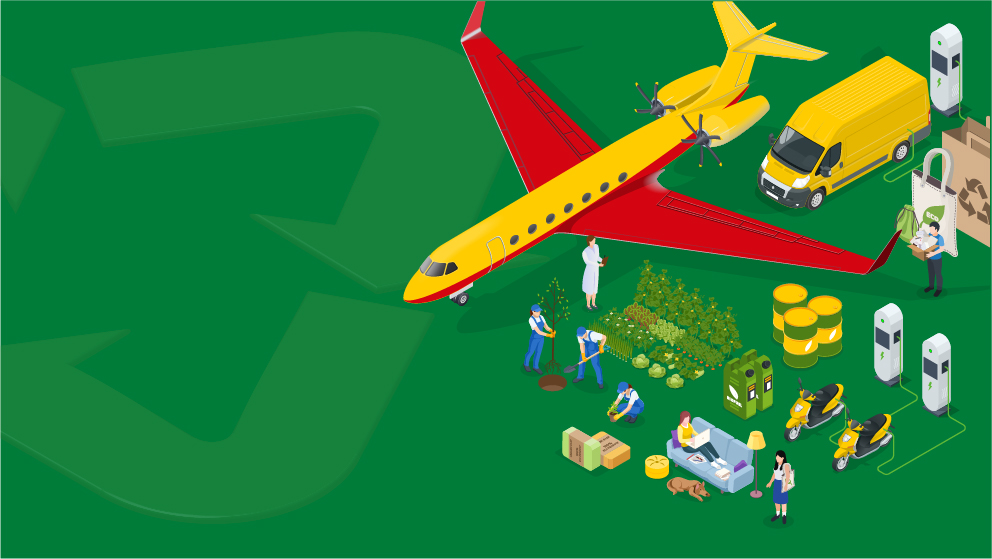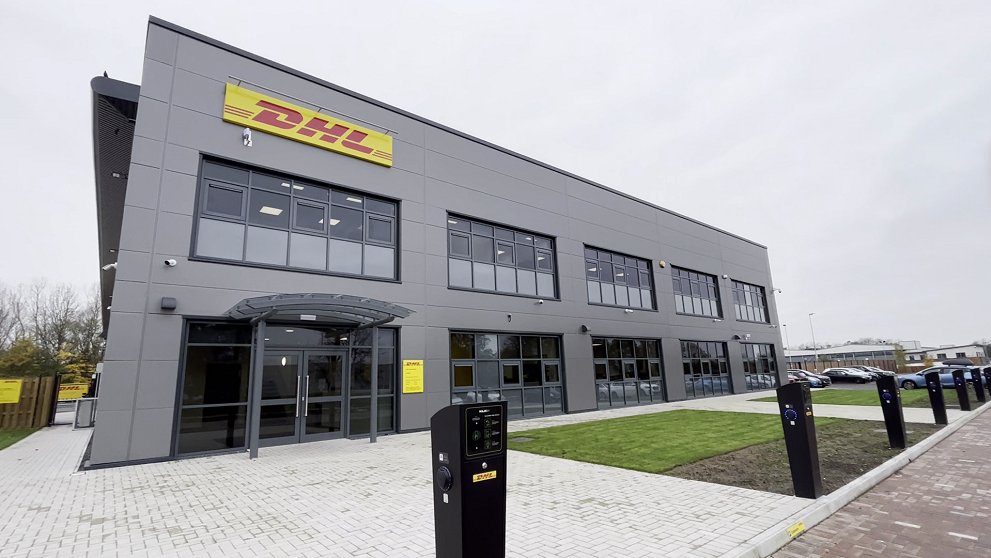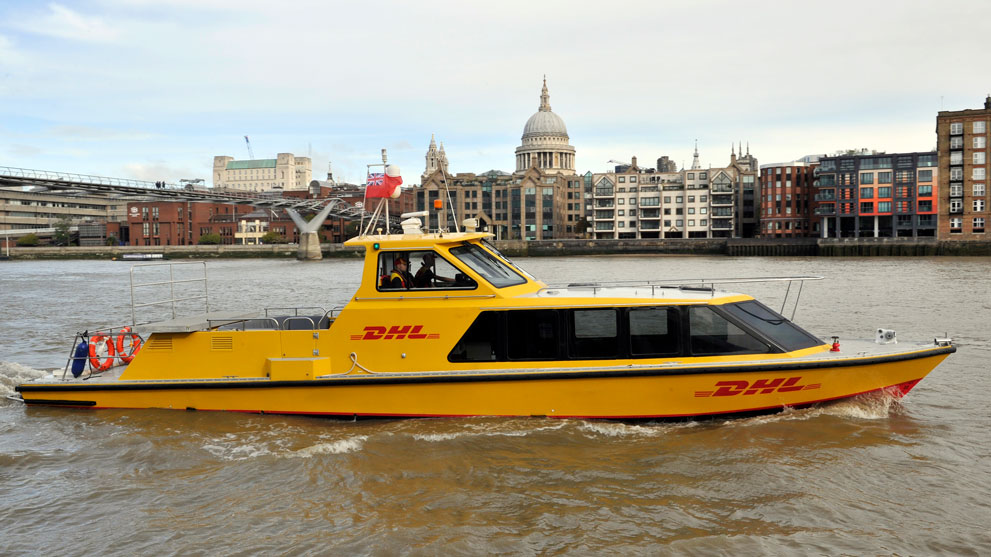DHL's GoGreen Plus service allows customers the ability to reduce their scope 3 emissions. Through the purchase of Sustainable Aviation Fuel (SAF), DHL will reduce (inset) CO2 emissions from air transport, which is a more sustainable alternative than traditional jet fuel.
We’re extremely passionate about sustainability at DHL. Not only are we fervent about driving sustainability within the logistics industry, but we’re also working hard to help our customers improve their credentials too.
What is SAF?
SAF is a greener alternative to traditional jet fuel. It can be made using different sources, including used cooking oil, animal fats, waste products, and agricultural crops.
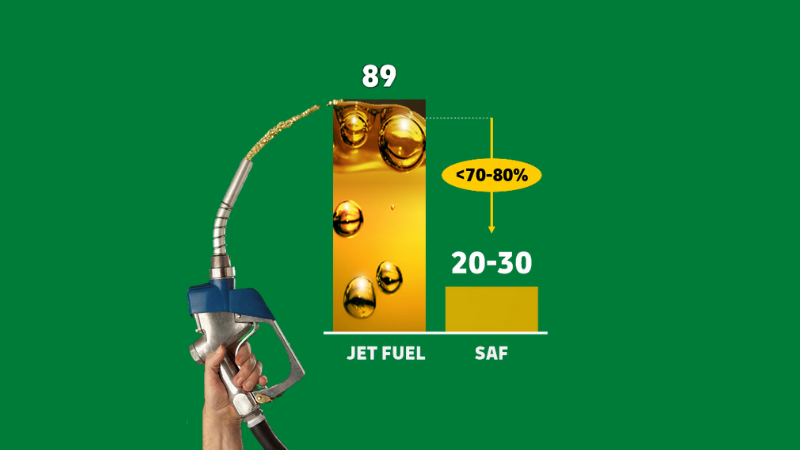
SAF can effectively reduce lifecycle emissions of typical aviation fuel emissions by up to 70-80%!
It reduces other harmful emissions like particulates and Sulphur by 90% and 100% respectively.
How can SAF benefit your business?
By replacing traditional jet fuel with sustainable aviation fuel (SAF), you can bring down your business’ Scope 3 emissions, helping to reduce (inset) greenhouse gas emissions.
In today’s world sustainability is impacting purchasing decisions as customers look towards more environmentally friendly options. With the statistics below in mind, applying GoGreen Plus to your shipments can offer your business a competitive advantage.
How does GoGreen Plus work?
Book & Claim allows us to ‘de-couple’ the environmental benefits of SAF from the physical product and transfer them separately via a dedicated registry. This approach has already been successfully implemented in the renewable electricity sector. Book & Claim means that the buyer and seller do not need to be connected physically in a supply chain. Since SAF is currently limited in availability as well as competitive pricing, by applying a Book & Claim system, we can overcome the challenge of establishing a separate distribution infrastructure for SAF, which would create unnecessary transportation emissions. Under Book & Claim, a specific quantity of SAF can be ‘booked’ in one location and then ‘claimed’ at another location that is not physically linked to the original one
By separating the environmental benefits from the physical product, we can transfer carbon emissions reductions to our customers who are increasingly requesting green logistics services. Implementing a Book & Claim system, including a registry for sustainable fuels, is beneficial for all players along the value chain as it allows for the credible transfer of in-sector emission reduction claims.
For more information on how the Book & Claim system works, please visit https://rsb.org/programmes/book-and-claim/
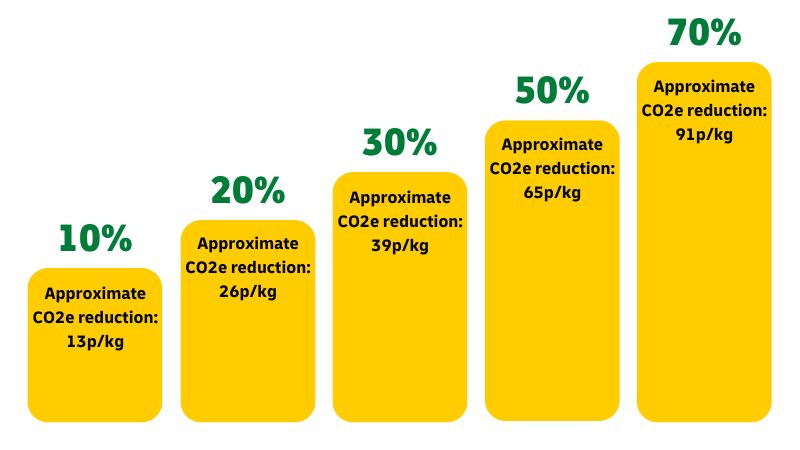
GoGreen Plus pricing
We offer our customers the opportunity to invest with us in SAF via our GoGreen Plus service. This means you can reduce your scope 3 emissions at a reduction percentage that fits your business sustainability goals. GoGreen Plus applies to Time Definite International (TDI) shipments only. This scale shows the new GoGreen Plus prices, effective from 1 January 2025.
*2025 prices
Emissions reporting
Businesses are facing a growing pressure to report on their sustainability efforts, and in some countries, it has even become mandatory. To be prepared from a regulatory perspective and show your commitment to sustainability, consider proactively reporting on your sustainability initiatives.
There are three scopes to report on:
Scope 1: covers direct emissions from owned and controlled sources e.g., company cars, company offices, manufacturing.
Scope 2: covers indirect emission from the generation of purchased electricity, heating etc. consumed by the business.
Scope 3: includes all other indirect emissions that occur in a company’s value chain, including downstream transportation and distribution. All activities a business is outsourcing should be included.
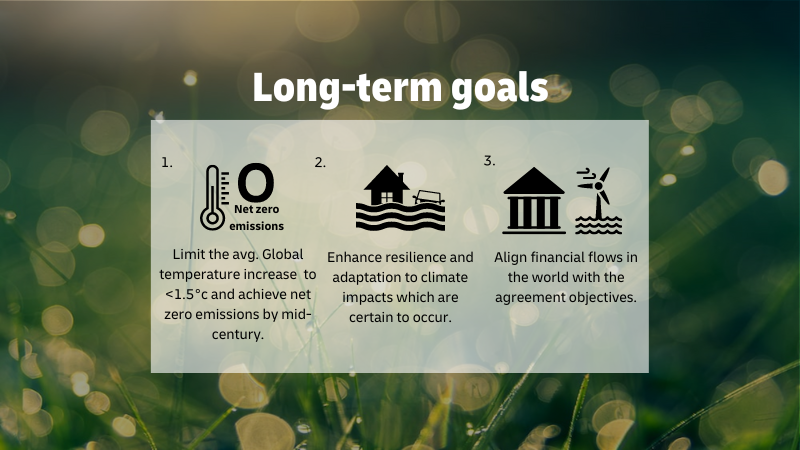
The Paris Climate Agreement
This is a legally binding international climate change treaty introduced in 2016 to combat climate change. Working towards the goals shown in this image, all countries involved are required to put forward their best efforts to drive change within their country and report on their efforts.
Offsetting vs. insetting
Offsetting carbon emissions involves investing in external projects that aim to reduce CO2 emissions. While offsetting can help compensate for emissions, it does not directly reduce the emissions being produced. This takes more time and investment but the shift to insetting is important.
Carbon insetting focuses on reducing emissions within a company’s own operations or supply chain. It involves implementing sustainable practices and technologies that directly decrease the carbon footprint of the organisation. By adopting insetting strategies, companies can take more immediate action to reduce their own emissions, rather than relying solely on offsetting.
GoGreen Plus reduces emissions within the logistics sector and so it can be used for DHL customers’ own emission reporting.
Start your journey to sustainability in 4 points!
Taking a gradual approach
We can help to shape your sustainability roadmap. With GoGreen Plus you can decide how much SAF you would like to use and how much CO2 you would like to reduce. You don’t need to reduce 100% of your emissions overnight – choose a gradual approach that fits with your CO2e reduction plans and budgeting requirements.
81% of people are more likely to choose a brand with a positive approach to environmental sustainability. With this increasing demand from consumers, it is important for businesses to adapt their sustainability approach. GoGreen Plus is a great solution for those shipping with DHL Express. With three different tiers, you can easily choose how much you’d like to inset your emissions by to suit your businesses sustainability goals.
Watch our GoGreen webinar below!
1 - https://www.planetly.com/articles/sustainability-in-e-commerce-7-ways-your-brand-can-reduce-its-carbon-footprint






